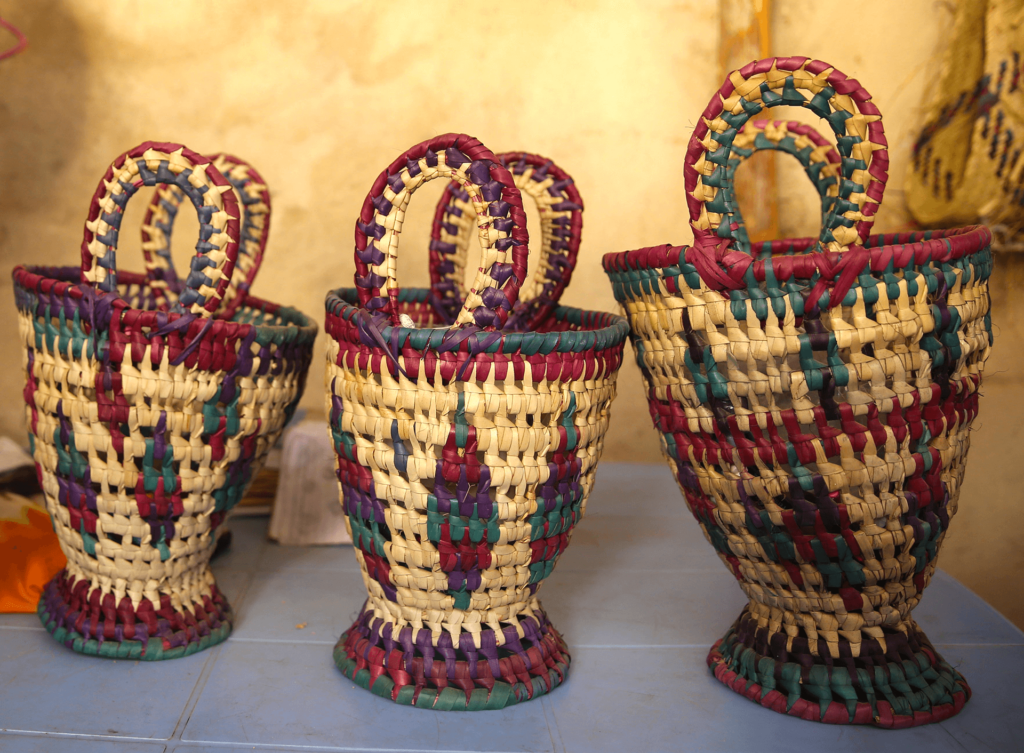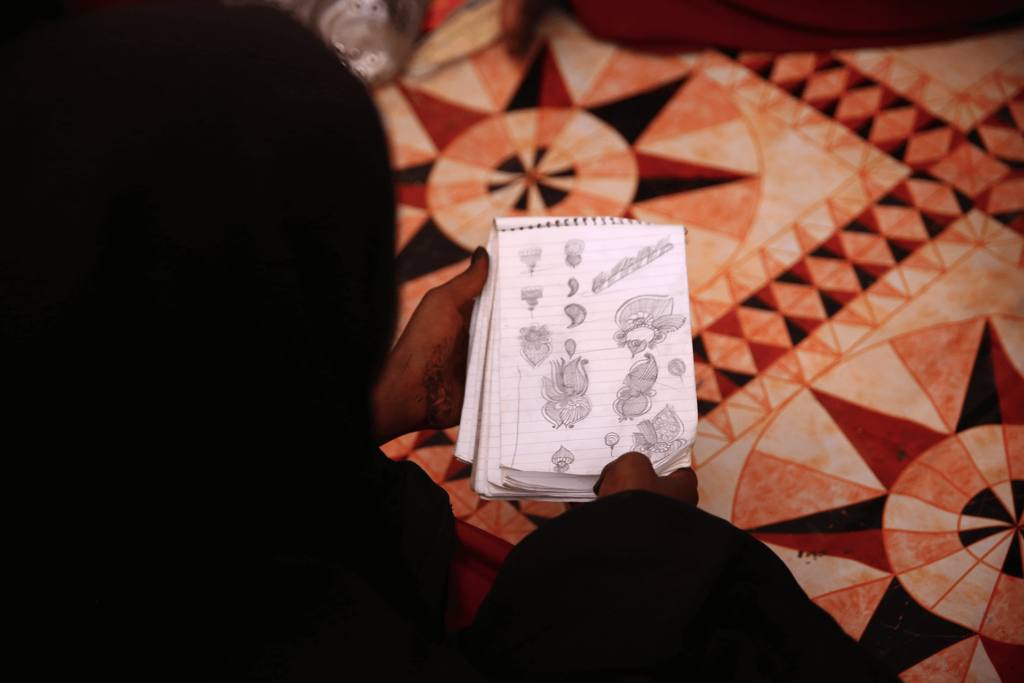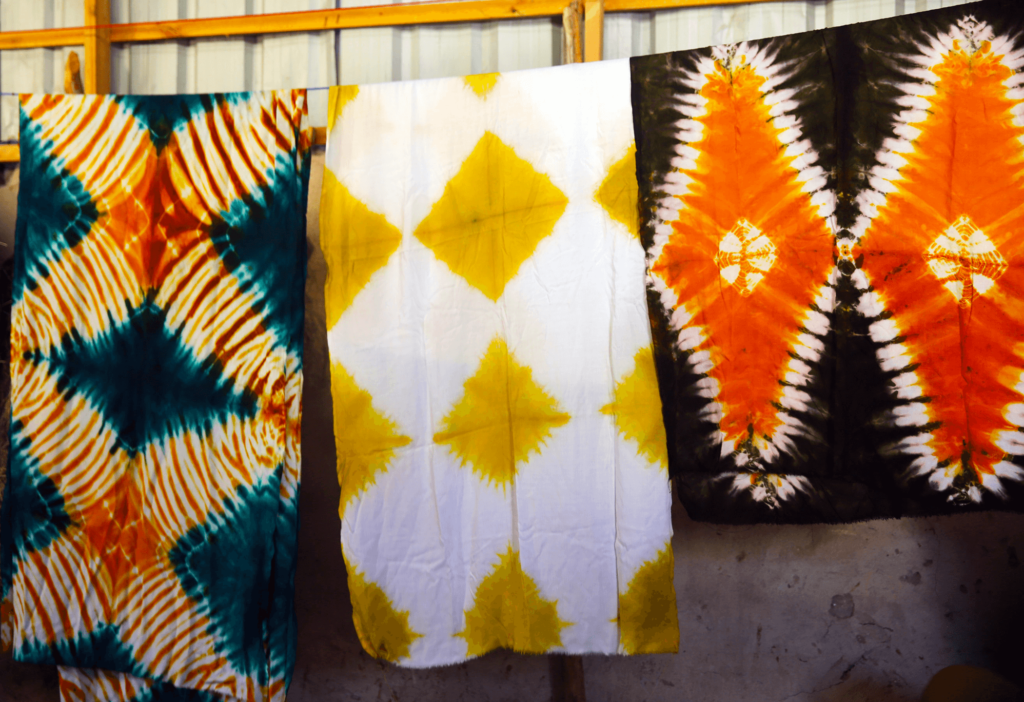Decades of protracted conflict and other emergency situations in Somalia, such as drought and floods, have led to displacement of an estimated at 2.6 million people, and increased the number of vulnerable women and girls. Breakdown of family and social protection networks and social/cultural norms, as well as gender inequality, have exacerbated the situation, limiting the full social, political and economic participation of women in the region. Many women and girls in Somalia have experienced physical and sexual assault, early and forced marriages, rape and loss of loved ones, property and homes. Without sufficient support structures, many women and girls are left with high levels of distress and trauma.
With support from USAID’s Bureau of Humanitarian Affairs (BHA), International Medical Corps offers Women and Girls Safe Spaces (WGSS) in Baidoa, Jowhar and Mogadishu, where women and girls—including survivors of gender-based violence (GBV)—gain practical skills and receive psychosocial support.
“There is no other such service in Jowhar, and there is a great need for WGSS for GBV survivors and other vulnerable women and girls,” says Fadumo Sheikh Hassan, International Medical Corps’ Sexual and Reproductive Health Officer. “Our shelter is a place where women can communicate and share information and knowledge. They also receive continuous psychosocial support services through individual and group peer-to-peer support.”
At the WGSS, GBV survivors and other vulnerable women and girls receive psychosocial and basic emotional support through individual and peer-to-peer support group sessions. Women and girls also learn about topics related to water, sanitation and hygiene; nutrition; health; and GBV. Visitors also have opportunities to learn basic language and mathematics skills, receive training on henna art, tie-dye, basket weaving, mat-making and traditional incense making.

Khadija,* a participant in the program, says, “WGSS has really changed our lives, because we have gained skills and new ideas, and therefore are now able to adapt to work environments.”
As of June 2020, 15 groups, totaling 608 women and girls, had attended the WGSS. Out of these, 118 women were from Jowhar, 250 from Baidoa and 240 from Mogadishu. As International Medical Corps has continued to offer the much-needed services to enhance social and economic opportunities for women and girls, many of them have become more vocal about GBV issues and have been able to overcome their past and forge a better future.
Ifrah Abdisalam, a GBV Social Worker for International Medical Corps, says the training “is a much-needed service that has empowered women and girls, improved their self-confidence and reduced their anxiety, because they learn about coping mechanisms to reduce their stress.”
Fouzia,* a graduate of WGSS in Baidoa, says, “I am using the skills that I have gained to earn a living and I can, therefore, feed my children for them to stay healthy. I am very grateful to International Medical Corps.”
“I acquired skills in tie-dye, tailoring, weaving and henna art at the WGSS, as well as continued individual and peer-to-peer support group sessions,” says Leila,* who participated in the WGSS in Mogadishu. “I also got the courage to expand my skills because I am free to use what I learnt from the spaces, and this has mainly supported the way I manage the daily life of my family.”

Amina,* from the Baidoa program, says, “Before I joined WGSS, I didn’t have the skills required to do tie-dye, but I have now, and have also acquired skill to do many other activities. I thank International Medical Corps for its commitment and dedication in supporting us. I am willing to change my lifestyle through the knowledge I gained within three months. My previous life was stressful, but I am now relieved after attending several psychosocial support sessions.”
The WGSS program provides women and girls with meaningful skills and improves their interpersonal wellbeing and social connections. Aliya, a graduate of WGSS, has rented a small room and started providing henna art services to brides-to-be. She has also hired a sewing machine and has started making clothes for women and girls. By providing a sense of community and safe spaces in Jowhar, Baidoa and Mogadishu, the program has helped more GBV survivors and other vulnerable women and girls to thrive.
* Names have been changed to uphold the confidentiality of participants.
